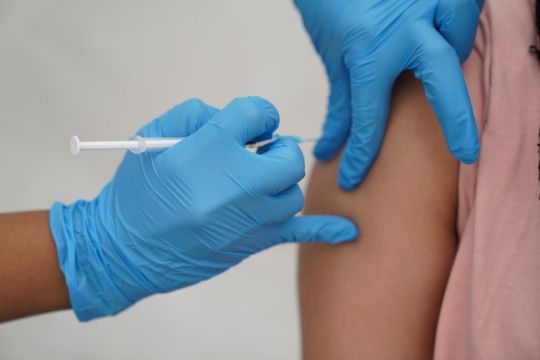The European Medicines Agency (EMA) has recommended the authorisation of two coronavirus vaccines made by Pfizer/BioNTech and Moderna which have been tweaked to include protection against an early version of the Omicron variant.
The EU drugs regulator said in a statement that the two messenger RNA boosters offered protection both against the original version of Covid-19 and the Omicron subvariant BA.1, which has since been overtaken globally by later Omicron subvariants BA.4 and BA.5.
Nearly 80% of coronavirus cases worldwide are now being caused by Omicron BA.5, according to the World Health Organisation (WHO).
‼️ EMA has recommended authorising the first adapted COVID-19 #booster vaccines.
The Comirnaty and Spikevax vaccines adapted to the Omicron BA.1 subvariant will provide broader protection against #COVID19.
➡️ https://t.co/6xcmoNRK5c pic.twitter.com/Lw7eqcG8dO— EU Medicines Agency (@EMA_News) September 1, 2022
Advertisement
The decision comes a day after the US drugs regulator cleared updated versions of Covid-19 vaccines incorporating protection against the later subvariants, after telling pharmaceutical firms in June that any updated boosters must target the most recent versions of Omicron.
The EMA said adapted vaccines were expected “to help maintain optimal protection against Covid-19 as the virus evolves”.
The regulator is also currently reviewing an updated version of the Pfizer/BioNTech vaccine that aims to protect against the later BA.4 and BA.5 Omicron variants.
Scientists hope the new boosters will trigger a strong response from the immune system to prevent not just serious illness but perhaps milder infections also – much like the original vaccines did earlier in the pandemic, before more contagious mutant versions emerged.
It is unclear how well the updated boosters will work since experts are still gathering data.
Last month, UK authorities cleared an updated version of the Moderna booster that included protection against Omicron subvariant BA.1, saying the jab would be offered to people aged 50 and over beginning in September.
In Germany, health minister Karl Lauterbach said that inoculations with the new vaccines could start next week and that “now is the optimal time to close vaccination gaps for the fall”.
Globally, coronavirus cases and deaths have been dropping for weeks, but scientists expect a surge of hospitalisations and deaths with the coming onset of winter in the northern hemisphere.







